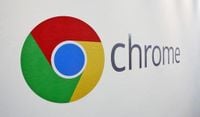In a significant legal development, OpenAI has expressed a keen interest in acquiring Google's Chrome browser, contingent upon a court ruling that could force Google to divest some of its assets as part of ongoing antitrust proceedings. This revelation came during a recent court session where Judge Amit Mehta is deliberating on measures to limit Google’s monopoly in the online search market, a situation that has sparked considerable debate and scrutiny.
According to reports from Reuters, the U.S. Department of Justice (DOJ) has been pursuing antitrust actions against Google, which has been labeled a monopolist in the realm of online search. As part of these efforts, the DOJ has proposed various remedies, including the potential sale of the Chrome browser and the separation of Google’s business segments to restore competition.
Nick Turley, the head of ChatGPT, testified in court, stating, "Yes, we would do it, like many other parties," when asked if OpenAI would seek to purchase Chrome if it were put on the market. Turley emphasized that owning the browser would enable OpenAI to enhance user access to artificial intelligence technologies and create a more integrated interface for its services.
Currently, ChatGPT operates as an extension on Chrome, but the integration has faced challenges, particularly on Android devices. Turley noted that OpenAI has encountered significant distribution issues, despite successfully partnering with Apple to integrate ChatGPT into its iPhone ecosystem. The company's aspiration is to make ChatGPT capable of independently processing a substantial portion of user queries, a goal that has been deemed ambitious and possibly unattainable within the original timeline.
The backdrop of these developments is a broader legal landscape where the DOJ has been pushing for stricter measures against Google. The agency has demanded not only the sale of Chrome but also the termination of exclusive contracts that favor Google’s search engine as the default on smartphones. Furthermore, the DOJ is advocating for competitors to gain access to crucial search data that Google currently monopolizes.
As the trial unfolds, the implications for the tech industry could be profound. Analysts suggest that the potential divestiture of Chrome could reshape the competitive dynamics within the market, reminiscent of the breakup of AT&T in the 1980s. The outcome of this case is expected to be announced by August, and it could lead to significant changes in how tech companies operate, especially those involved in search and AI technologies.
OpenAI's interest in Chrome is not merely about search capabilities; it is also part of a long-term strategy to bolster its position against tech giants like Google and Microsoft. Analysts estimate that Chrome could be valued between $15 and $20 billion if it were to be sold. This figure underscores the browser's critical role in driving traffic to Google's search engine, which processes nearly 90% of all search queries globally.
In a related note, the DOJ's case against Google has been ongoing since 2020, when the agency first accused the company of suppressing competition through various monopolistic practices. These include agreements that pre-install Google’s search engine on devices manufactured by major companies like Apple and Samsung, which have reportedly received billions in payments for these arrangements.
Despite the mounting pressure, Google has maintained that its search engine's popularity stems from its superiority over competitors like Bing and DuckDuckGo. The company has not indicated any intention to sell Chrome, with plans to appeal the court's decision regarding its monopolistic status. Google executives have argued that the company’s practices are in line with consumer preferences, asserting that users choose Google for its quality and efficiency.
In court, Turley highlighted the importance of search technology for ChatGPT, stating, "Search is a critically important part of ChatGPT. It helps to give factual and up-to-date answers, especially where the model doesn't have its own information." This underscores the dependency of AI services on robust search capabilities, which could be enhanced through a partnership or acquisition of Chrome.
Furthermore, documents presented during the trial revealed that Google has been exploring new exclusive agreements with Android device manufacturers, which could further entrench its market position. While Google has made some concessions, allowing manufacturers like Samsung and Motorola to pre-install alternative search and AI applications, the DOJ continues to push for more stringent measures to ensure fair competition.
As the proceedings progress, the tech community watches closely, recognizing that the outcome could set precedents for future antitrust cases in the technology sector. The potential sale of Chrome could not only alter the competitive landscape but also redefine how AI technologies are integrated into web services.
In summary, OpenAI’s bid for Chrome, if pursued, could represent a pivotal moment in the tech industry, challenging established norms and potentially reshaping the future of online search and artificial intelligence. With the court’s decision looming, the implications for Google, OpenAI, and the broader tech ecosystem remain to be seen.





